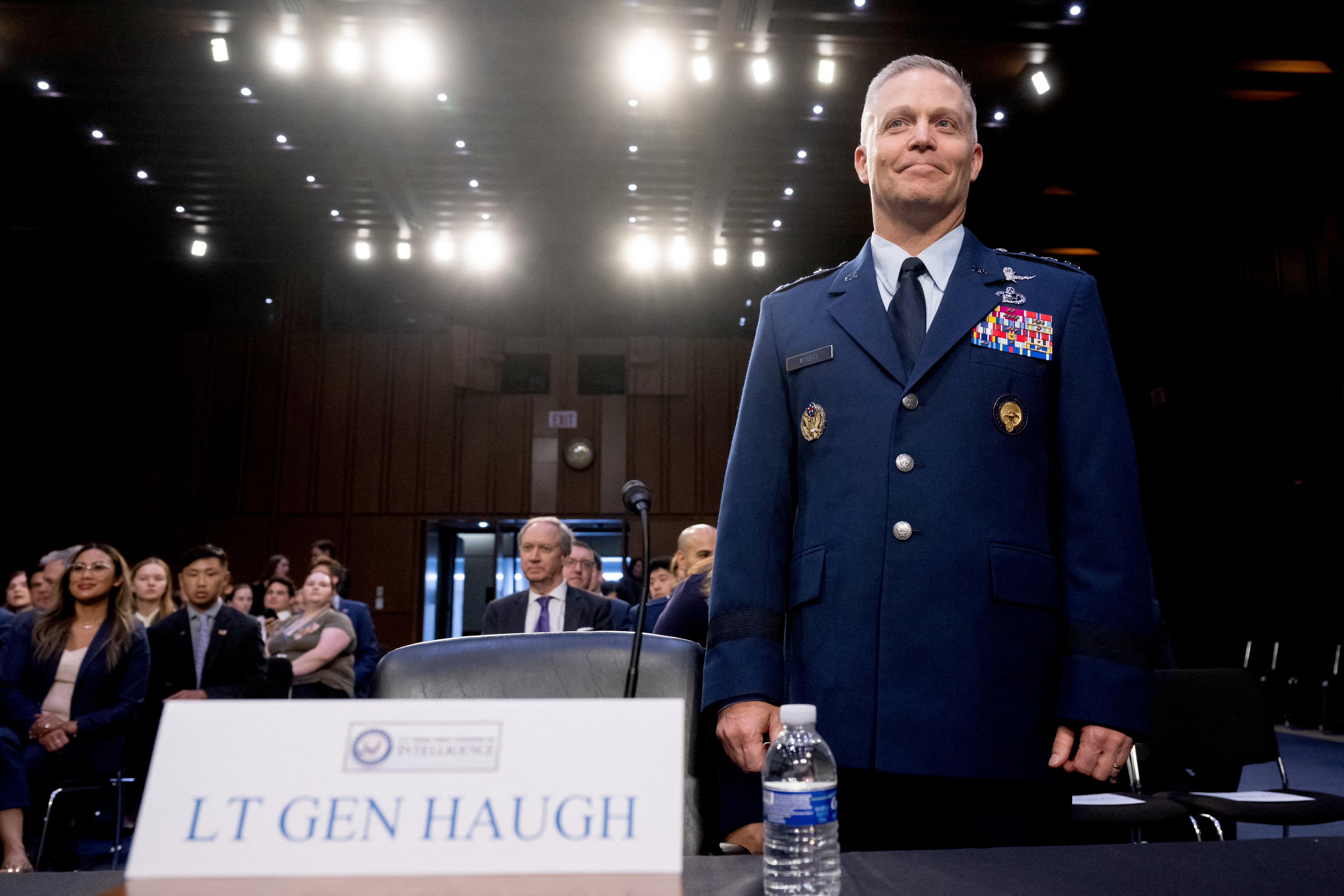Senate lawmakers on Tuesday evening confirmed 11 senior military nominees that had been stalled for months, putting an end to the nearly year-long political blockade by Alabama Republican Sen. Tommy Tuberville which had created leadership problems across the Defense Department.
Tuberville earlier this month lifted his hold on more than 400 nominees whom he had blocked due to his objections over the military abortion access policies. At the time, he said he would keep his hold on the 11 four-star nominees in a continuation of that protest, but he relented this week amid additional pressure from Democratic and Republican leaders.
The individuals confirmed in group vote include the heads of three combatant commands and the second-ranking official for four of the five military services. (Lt. Gen. Christopher Mahoney was confirmed as the assistant commandant of the Marine Corps in November.) They are:
- Air Force Lt. Gen. Kevin B. Schneider, nominated to be commander of Pacific Air Forces;
- Air Force Gen. Kenneth S. Wilsbach, nominated to be head of Air Combat Command;
- Air Force Lt. Gen. Gregory M. Guillot, nominated to be head of U.S. Northern Command;
- Air Force Lt. Gen. Timothy D. Haugh, nominated to be head of U.S. Cyber Command;
- Air Force Lt. Gen. James C. Slife, nominated to be Vice Chief of Staff of the Air Force;
- Army Lt. Gen. James J. Mingus, nominated to be Vice Chief of Staff of the Army;
- Navy Vice Adm. James W. Kilby, nominated to be Vice Chief of Naval Operations;
- Navy Vice Adm. Stephen T. Koehler, nominated to be head of U.S. Pacific Fleet;
- Navy Vice Adm. William J. Houston, nominated to be director of the Naval Nuclear Propulsion Program;
- Space Force Lt. Gen. Michael A. Guetlein, nominated to be Vice Chief of Space Operations;
- and Space Force Lt. Gen. Stephen N. Whiting, to be head of U.S. Space Command.
Pentagon officials in recent days had said the positions are critical for national security and had urged senators to find a way to get them confirmed before the end of the year.
The Senate was scheduled to leave town last week, but Senate Majority Leader Chuck Schumer, D-N.Y., extended the chamber’s session by a few days in part to get the military confirmations cleared.
RELATED

If the senior officers had not been approved by the end of the month, the White House would have needed to resubmit their nominations for consideration in 2024. In the end, military leaders saw their senior officials confirmed without making any of the changes demanded by Tuberville to the abortion access policy.
Senate leaders could have moved any one of the 430-plus nominees held up by Tuberville since his blockade started in late February, and the chamber did approve a handful of individuals in stand-alone votes in recent months.
But Schumer and other Democrats argued the moves broke chamber precedent for non-controversial military promotions and nominations. They also worried that given the large number of officers involved, typical Senate procedures would have taken months of time-consuming work on the Senate floor.
Thanks to Tuberville’s reversal, late last week Senate leaders cleared a handful of lower-ranking nominees held up by Sen. Eric Schmitt, R-Mo., over concerns he had about Defense Department diversity training programs. They also advanced legislation to give back pay and retroactive benefits to officers whose nominations had been held up by Tuberville’s protests.
Schumer said that providing back pay “is the very, very least the Senate could do to right this awful wrong.”
However, House lawmakers will have to approve that legislation before the senior leaders receive any money. The House began its holiday recess on Dec. 15 and will not consider the bill until members return in January.
Tuberville has promised to continue to hold all senior civilian Pentagon nominees in protest of the abortion access policy, which grants leave time and travel stipends to troops forced to travel across state lines for abortions or related procedures.
Currently, that hold applies to only one individual: Ronald Keohane, President Joe Biden’s pick to be assistant secretary for manpower and reserve affairs.
Leo covers Congress, Veterans Affairs and the White House for Military Times. He has covered Washington, D.C. since 2004, focusing on military personnel and veterans policies. His work has earned numerous honors, including a 2009 Polk award, a 2010 National Headliner Award, the IAVA Leadership in Journalism award and the VFW News Media award.




